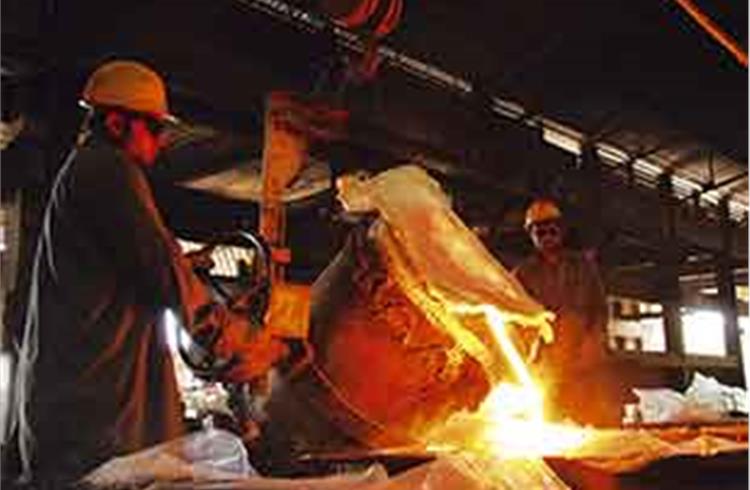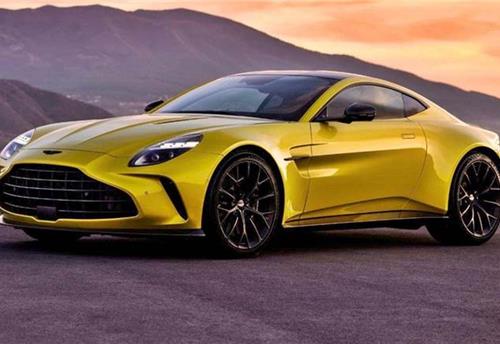Gujarat Metal cast on new tech drive
The lost foam process will end up being a cost-effective alternative.
Continuing with the main theme, the Vadodara-based company is in talks with a leading car and two-wheeler make to offer engine blocks made of ferrous castings. A prominent German carmaker is also in the process of approving GMC as a castings source made through the lost foam process. It is examining the option of sourcing intricate castings. Initially, the company will source general parts before moving on to safety critical components also, said Chandrakant R Patel, managing director in an interview to Autocar Professional.
GMC is investing Rs 8 crore to set up another foundry in the same premises to double annual capacity from 4,000 tonnes. This will be commissioned soon. The company is confident that turnover will increase nearly three-fold by 2008 once supplies to new business get regularised. Engine makers prefer aluminum engine blocks and heads to ferrous options thanks to a slew of benefits like light weight, faster heat dissipation and better fuel economy. Making blocks through the lost foam process helps them be come more cost-competitive.
Globally, the likes of General Motors, BMW and Fiat make aluminum engine blocks and cylinder heads through lost foam process due to advantages like closer tolerance and better surface finish. Besides, there is no room for mismatch of components’ constituents compared to conventional green sand castings. Since it is a coreless process, total elimination of fins and flashes in the castings is achieved. Besides, the castings in this process weigh less and need minimal machining.
GMC has recently developed a camshaft for a model from Suzuki Motorcycles India. Patel said samples have been supplied to the second model too. The company is working with Westinghouse Airbrake Company - Wabco in the US to develop an aluminum valve body meant for vacuum brake system in freight wagons. Samples have been approved and initial volumes will be around 60,000 units annually.
The American company has, incidentally, given some assignments to design and develop more parts. Of these, samples for two parts, including pipe brackets, will be sent next month. Patel expects the numbers to be around 80,000 units annually. GMC has warehouses in Orlando (Florida) and Finland to support overseas customers. In order to cater to Wabco, it is now looking at creating one more in Hamilton, Canada.
The company has also received enquiries from ITEC (International Truck and Engine Corporation) for two components (exterior offset frame and oil cooler cover) to be made through the lost foam process. The combined annual volumes will be 4,500 tonnes and an additional facility will be needed for this purpose.
GMC is also working on a hydraulic valve control body for Husco International in the US. Patel said production will begin soon and will involve making 50,000 parts annually. The company’s history can be traced to 1975 when it actually began production. In 1997, it moved from Halol to the current location in Garadhiya, 20 kilometres from Vadodara.
GMC produces nearly 40 percent of castings in perlitic malleable iron for automakers. It began catering to big names like Mahindra & Mahindra, Ingersol Rand, Tata Motors etc. In 1990, the company developed a camshaft for Hero Honda and soon became a single source supplier through its Tier-1 company. The camshaft is made through a special grade of material achieved through special heat treatment.
For the last four years, GMC began manufacturing aluminum die castings with A356-76 grade material. It soon became a supplier for HMSI (Honda Motorcycle & Scooter India). When Activa volumes picked up, its manufacturer not able to machine the component and the camshaft was supplied to Musashi Auto Parts in Rewari, a Honda supplier.
RELATED ARTICLES
Tesla's revenue drops by 9% to $21.30 billion in Q124, steepest y-o-y decline since 2012
Tesla's revenue decline comes at a time when it's seeing weak deliveries, competition from Chinese incumbents, price cut...
New Aston Martin Vantage priced at Rs 3.99 crore
New Vantage is powered by a 665hp, 4.0-litre V8.
Stellantis India announces price hike for Citroen and Jeep models
This adjustment will translate to an incremental rise ranging from Rs 4,000 to Rs 17,000 across the respective models.





 By Autocar Pro News Desk
By Autocar Pro News Desk
 15 Feb 2007
15 Feb 2007
 6763 Views
6763 Views









